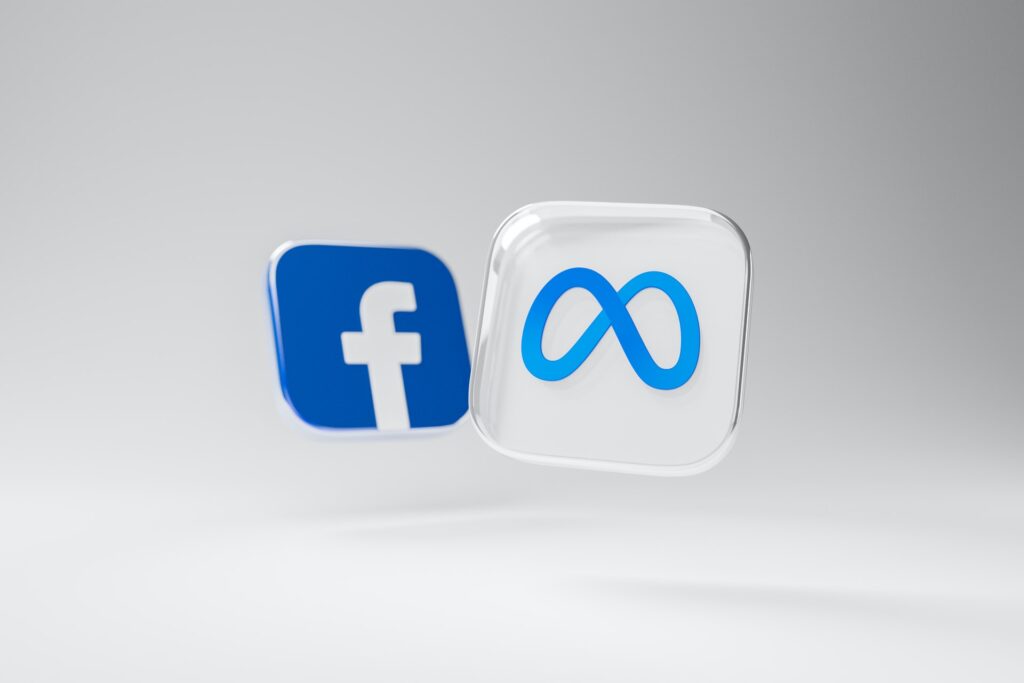It seems the new gold rush is in the metaverse.
Millions.
People bought virtual lands for millions; people gathered in virtual concerts by millions.
Take the rapper Travis Scott for example.
For his concert in the video game Fortnite, he generated (including merchandise sales) $20 million in gross revenue.
Compared to $53 million for his entire Astroworld Tour of 2019, the metaverse is worth the detour!

Grayscale, the world’s largest digital currency asset manager, estimates the global market in the metaverse will soon be worth $1 trillion.
The metaverse is awakening appetites; it’s not a surprise everyone wants to own it, including Facebook.
Nearly 10,000 employees are working on augmented reality and virtual reality devices, accounting for almost a fifth of Facebook employees.
For this year alone, Facebook is spending $10 billion on its metaverse division. And they plan to spend more for the next coming years.
The future is what Mark Zuckerberg says it is.
And he sounds confident that we will increasingly spend more time in the virtual world.
We’ll ignore Facebook’s harm and go live, work, and play in his metaverse.
But before exploring this scenario, let’s look first at what is a metaverse.
What is the metaverse?
Facebook defines the metaverse as a “virtual space where you can create and explore with other people”.
Microsoft’s definition speaks more to me: the metaverse is a digital space inhabited by digital representations of people and things.
You can think of it as the internet becoming 3D.
In virtual reality, your avatar will be able to live, work, and play. Just like in the real world.
The first metaverses appeared in video games. Avatars were able to socialize in the 2003 virtual world Second Life.
In the future, it won’t be one metaverse. Facebook, Microsoft, Nvidia, and others, are all building their metaverse.
The challenge will be to connect them to be able to teleport from one world to the other, just like we go from one web page to the other.
To access the virtual world, you’ll need VR technology.
There are different VR headsets in the market. Their prices depend on the quality of the immersive experience.
Facebook aims for wide-scale adoption, so it keeps the price relatively low.
Their new Oculus Quest 2 costs $299.
The technology is not perfect though. Some customers experience dizzy effects.
If you want to have a feel of how the metaverse looks like, check WSJ’s Joanna Stern who used the Oculus Quest 2 for 24 hours!

Other companies–like Google or Samsung– tried the mobile phone-based VR headset, but it’s dead now. It seems the consumers were resistant to this option.
And Facebook Became Meta

Zuckerberg rebranded his company as Meta Platforms.
He wants us to think of Facebook as more than a social media platform—a metaverse company.
Now Meta is the parent organization of Facebook, Instagram, WhatsApp, Oculus, and others.
Some say the rebranding came as a result of the negative reputation Facebook has been attracting.
The Guardian gave examples of companies changing names in the past:
“There is a long tradition of companies renaming themselves after a scandal. The private security firm Blackwater changed its name twice to try to dissociate itself from the killing of Iraqi civilians. The tobacco giant Philip Morris was renamed “Altria”, presumably to make you think of the concept of altruism rather than, say, terminal lung cancer. “
And the least we can say, Facebook has a long list of negatives.
From the scandal of Cambridge Analytica to amplifying white nationalism in the US, passing by ethnic cleansing in Myanmar, and targeting pre-teens, the list can go on and on.
‘Criticism of Facebook’ page will give you enough to read.
The leaked documents from a whistleblower didn’t arrange things.
This same company wants us to spend most of our time in Facebookland.
The intention has clearly been expressed.
In 2018, Jason Rubin, Oculus executive, wrote in a document to Facebook’s board and top executives:
“I might check in to Facebook multiple times a day, but I will LIVE in the Metaverse, work in the Metaverse, and potentially prefer my time in the Metaverse to my day-to-day grind”
So let’s see what Facebookland has to offer.
So Mark, What’s the Metaverse For?
If you are one of those who think Zuckerberg is an alien, this video will confirm your thoughts.
Mark looks more humanoid than ever before!
The metaverse is about presence and self-expression. And Facebookland won’t be different.
People will feel they are together. They will also care a lot about the representation of their identity.
Just as you’re shopping for yourself, you’ll need to shop for your avatar.
You can also have your virtual home with an amazing ocean view and a fireplace. Invite your family and friends to join you as avatars for quality time.
With Horizons worlds, you can build the world you want.
Organizing a surprise birthday party will be a piece of cake.
It’s not all about entertainment though.
You’ll be able to work remotely. You’ll have a sense of presence without shared physical space.
Zuckerberg said privacy will be built from day one and announced some next-level developments.
Project Cambria looks after your avatar so it can make natural eye contact and reflect your facial expression in real-time.
In the future, you’ll have mixed reality experiences: training with a virtual coach (hologram) or writing notes on a virtual desk.
That’s for the announcements.
Meta is what we call vaporware. It’s the promise to build a virtual world before it’s actually ready.
Facebookland is not great yet, but it doesn’t mean it will remain it.
What is the problem Facebook’s metaverse is solving?

Let’s start with work.
Remote meetings can lack these small moments that connect people and strengthen relationships.
Having this sense of presence will resolve this and enhance the collective performance.
But Facebook is not the only one in this segment of the market.
Mesh for Microsoft Teams did a more appealing presentation.
You go there, you do serious work and you get out. They are not trying to keep you inside to play games or organize birthday parties.
What about virtual homes? Which problem does it solve?
Well, it’s difficult to invite your friends to your tiny and unaffordable flat.
Now you can have your virtual house with a fireplace and the ‘most beautiful and inspiring view’.
Your friends will join you as avatars. And best of all, you won’t have to cook for them or worry about doing the dishes once they leave. AMAZING!
In the future, tiny rooms might come with a VR headset. It will be more bearable to live in them.
Let’s move on to the social part.
Facebook’s mission, as they say, is to bring people together.
Add the sense of presence, and you’ll have an authentic feel of hate speech. Awesome.
The rest is entertainment.
I’m wondering if Zuckerberg spends as much time playing as he encourages others to do.
I don’t think so.
Gaining More Power
There are two ways to look at Facebook’s metaverse: what is said and what’s between the lines.
Facebook’s objective is total control of the user’s experience.
Look at Apple for example.
They are close to worth $3 trillion in market value. Why is that?
Part of it is Apple has control over the three things that make the user experience:
- Hardware: devices like phones or laptops.
- Software: operating systems like Microsoft Windows or macOS.
- Navigation system: Like Chrome or Safari.
Apple controls the hardware (making its own devices), has its own software (macOS), and controls the navigator (Apple Safari).
Google controls the navigator (Chrome) and starts making devices.
Facebook controls nothing. They don’t have devices, don’t have software, and have no navigator.
The recent Apple privacy updates show how Facebook is dependent on other companies’ policies.
We think of Facebook as a social platform but rarely as the second-largest digital ad platform in the world after Google.
By blocking a lot of the advertising tracking, Apple hit Facebook in their revenues more than any other company.
With the metaverse, Facebook has an opportunity to gain more power.
They have the device (Oculus), the meta-OS, and the navigator.
With these three, they’ll have total control over the user experience.
God Is Coming with Us to the Metaverse
If God is in the metaverse, you have no more reason to stay out.
The New York Times published a fascinating article on how Facebook is targeting believers.
They want churches, mosques, synagogues, and others to use the metaverse for hosting religious activities.
As Sheryl Sandberg —Facebook’s chief operating officer— put it:
“Our hope is that one-day people will host religious services in virtual reality spaces as well, or use augmented reality as an educational tool to teach their children the story of their faith”.
So cute.
Businesswise, it’s a good strategy.
Why bother convincing the many when you can have better results convincing the few.
Take for example the two religions which have the most adherents.
There are about 2.3 billion Christians and 1.8 billion Muslims.
If you can convince some of their leaders to host religious activities in the metaverse, that’s millions of adherents coming with them.
Once the adherents have a ‘foot in the door’, it is easier to keep them there.
After ruining our social and political life, Facebook is coming for our religious life:
You better watch out
You better not cry
Better not pout
I’m telling you why
Facebook’s meta is coming to town…
Final Thoughts

I skipped the concerns about the metaverse from privacy to addiction.
Facebook changed its name but not its business model.
The same concerns will remain and even intensify.
For the moment, we have our will. But when we’ll see massive groups entering, we won’t like to be left behind.
It makes me think of what the social critic Lewis Mumford called “the magnificent bribe”.
In exchange for our compliance, the technological systems offer us something shiny and new.
It’s presented as good for the individual. But actually, it’s good for the growth of technological systems.
These shiny and new things don’t solve our problems. Most often, they are luxuries. But over time, they become necessities.
So I’m curious to see how they will bribe us.
Actually not.
While I was researching for this article, the hadith of the prophet Muhammad (PBUH) kept coming to my mind:
“Soon the best property of a Muslim will be a flock of sheep he takes to the top of a mountain, or in the valleys of rainfall, fleeing with his religion from tribulations.” [Sahih Bukhari]
Article posted the 14 December 2021
Popular Articles
- 7 Lessons from Luqman that Will Make You Wise
- For or Against Vaccines? That’s Not Really the Question
- Allah According to Allah: The Beauty Behind the Verse of Light
- How to Enjoy Salat and Make it Meaningful
- Are Muslims Meant to Be Sleep Deprived?
- Islamic Psychology: A Model Where Faith Has Its Place
- Blindness: From the Invisible Gorilla to the Quranic Perspective
- Muslims’ Unity: A Powerful Solution That Takes Its Time
- The Certainties of Muslims in Uncertain World
- Mongols Invasions: Some Forgotten Lessons to Today’s Muslims
- How to Make People Change their Mind: Persuasion!
- A Few Thoughts For Muslims
- How to Honor the Prophet?
- Muslims Judging Each Other: Why and How to Be Less Judgy


